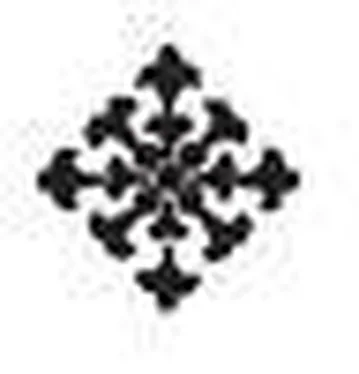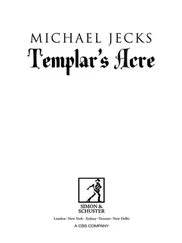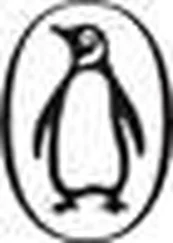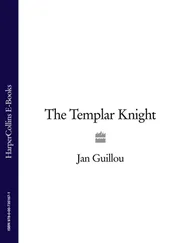C. Palov - Templar's Code
Здесь есть возможность читать онлайн «C. Palov - Templar's Code» весь текст электронной книги совершенно бесплатно (целиком полную версию без сокращений). В некоторых случаях можно слушать аудио, скачать через торрент в формате fb2 и присутствует краткое содержание. Год выпуска: 0101, Издательство: Penguin Group USA, Inc., Жанр: Старинная литература, на английском языке. Описание произведения, (предисловие) а так же отзывы посетителей доступны на портале библиотеки ЛибКат.
- Название:Templar's Code
- Автор:
- Издательство:Penguin Group USA, Inc.
- Жанр:
- Год:0101
- ISBN:нет данных
- Рейтинг книги:5 / 5. Голосов: 1
-
Избранное:Добавить в избранное
- Отзывы:
-
Ваша оценка:
- 100
- 1
- 2
- 3
- 4
- 5
Templar's Code: краткое содержание, описание и аннотация
Предлагаем к чтению аннотацию, описание, краткое содержание или предисловие (зависит от того, что написал сам автор книги «Templar's Code»). Если вы не нашли необходимую информацию о книге — напишите в комментариях, мы постараемся отыскать её.
During the Middle Ages a rumor was born about a mysterious and sacred Ancient Egyptian text. Known as the Emerald Tablet, it was said to contain the secret of creation.
But the greatest secret of all is who wrote it...
Templar's Code — читать онлайн бесплатно полную книгу (весь текст) целиком
Ниже представлен текст книги, разбитый по страницам. Система сохранения места последней прочитанной страницы, позволяет с удобством читать онлайн бесплатно книгу «Templar's Code», без необходимости каждый раз заново искать на чём Вы остановились. Поставьте закладку, и сможете в любой момент перейти на страницу, на которой закончили чтение.
Интервал:
Закладка:
In the ensuing months, I was a frequent guest at the abbey and can attest that costumed amusements and bawdy entertainments were routinely performed in the subterranean sanctuary, the monks’ motto being “Do you what you will.” Where you will and when you will, no space too public for a monk to slake his lust with an obliging nun.
One evening I arrived at the abbey keenly disappointed that the gay gaggle of whores was absent. Indeed, the gathered company seemed strangely solemn. I was informed that the monks had decided to bestow upon me a high honor; I was to participate in a sacred ritual. A metal case had been placed upon the stone altar. My heart beat a rapid tattoo against my breast. Dashwood, attired in Egyptian garb, opened the case and revealed a green tablet of unaccountable beauty. I stood transfixed. After a half century, I finally laid my eyes upon the Emerald Tablet. The high priest then mixed several powdered substances, heating them over a flame. Soon a noxious smoke filled the room. A few moments later, I was given a draft of a vile-tasting potion that caused my bowels to painfully cramp. Libations administered, Dashwood next attempted to penetrate the supernatural realm and rouse a demon to do his bidding. Any man with a passing knowledge of biblical text knows that governance over the devil is a risky venture. And a potentially dangerous pursuit. Intoning an ungodly chant, Dashwood held the Emerald Tablet aloft and displayed the relic’s ornate emblem, proclaiming that the secret of creation was contained within its arcane symbolism and that a man had only to decipher the symbols to commune directly with the heavenly sphere. As I am an avowed Deist, my mind did balk at this assertion.
Francis Dashwood, by his own admission, is a libertine bar none. But, as with all of the men in his inner circle, he was first and foremost an adherent to the hidden stream of knowledge. Not only did he practice alchemy, but he studied the Conjecture Cabalistica, and embraced the dark arts, particularly those that evoked the mysticism of ancient Egypt. In truth, Dashwood’s inner circle was a superstitious coven of sun-worshipping Atenists and bewigged magi.
Appalled and fascinated by their rituals, I feared the beautiful relic might indeed possess some mysterious power. Unlike my Brothers at the Philadelphia Lodge, Dashwood and his Masonic coven are a determined group of well-connected aristocrats with an ambitious bill of sale. Moreover they contend that the relic was the true power behind the British Empire. They prefix this claim by declaring that no sooner did Ralegh secure the relic than England’s global ascendancy began. Not unlike the ascendancy of the Hebrew tribes in the Old Testament. Thoth’s stone the beating heart of each empire’s rise. I decided then and there that delenda est Carthago. Carthage must be destroyed. And to ensure that the phoenix cannot open its beak, let alone rise from the ashes, their most sacred relic must be seized. The felicity and well-being of the colonies depends upon it. My plan was simple but brazen. I would appropriate the relic at the monks’ next gathering, a wild bacchanal the perfect diversion.
Several weeks later, an opportunity presented itself, a buxom nun in a state of dishabille my unwitting accomplice. Attired in cowl and robe, I ushered the nun to the monk’s cell where I knew the relic to be safeguarded by an armed grenadier. Assuming an intoxicated demeanor, made all the more believable by an unsteady weaving to and fro, I approached the guard. Grinning like a jackanapes, I informed the fellow that I was too far along in my cups to enjoy a good gallop and would he like to ride the flanking mare in my stead. “Indeed, I would be happy to oblige the request,” he assured me, making haste to unbutton his breeches, perhaps fearful that I might retract the offer if he did not thrum the good sister in swift order. Flourishing his weapon, he paid me no mind. Suspecting his stamina would prove of short duration, I hurriedly made my way to the adjoining room. The holy of holies. There I did find the relic housed in a metal case set inside a stone niche. I snatched the prize and, securing it beneath my voluminous garment, escaped to London in a waiting carriage.
That was four hours ago. I am soon to depart Craven Street in yet another carriage, this one headed to Portsmouth, where I will board a packet ship bound for the colonies. This night I have crossed the Rubicon, the bridge in flames behind me. As for the sacred relic, I propose to take Thoth’s stone to the City nearest the Centre to that place where men strive to improve the common stock of Knowledge so that all may prosper in mind as well as spirit.
Though tempted to delve into the relic’s supernatural mystery, I shall refrain. Enlightened man, empowered with intellect and reason, need not fall victim to the counterfeit claims of medieval occultism. I do believe that Francis Bacon was a gifted man who straddled two universes, one foot firmly planted in the enlightened world and the other firmly planted in the medieval age, a man of science with occult inclinations. But a man cannot be so divided, his very nature torn asunder. He must commit to one or the other. An enlightened man, a man burnished in the fire of science, knows that the mind is the most powerful weapon of all. God did not intend for man to take his sustenance from the meager larder of alchemy and magic, false sciences the both of them. Rather the Creator, the Supreme Deity, desired that man eat from the Tree of Knowledge.
To safeguard the relic, I intend to create a Triad of like-minded men who will ensure that Thoth’s stone is hidden away. As I am not entirely oblivious to the relic’s import, I shall propose to my fellow Triad members that we leave signposts lest a future age, unencumbered by the superstitions of this age, would find some scholastic merit in archiving the relic. If that day should come to pass, I suspect it will be long centuries from now. Since the dawn of time, man has been burdened with a superstitious nature that is not likely to dissipate in the near decades. In this, as with a good many things, there is a fine line between the sacred and the profane. Yea, for every Francis Bacon there are ten Francis Dashwoods who would leap at the chance to exploit the relic’s supposed power.
Given that these are dangerous times, I further propose that each member of the Triad select his successor. Should a Triad member meet an untimely end, another shall assume his responsibilities. In this way, the Triad can germinate itself indefinitely. My task is now made clear. I must find the catheti to my hypotenuse. Men of good moral character but not given to public piety. Men possessed of intellect but not lacking in compassion. And, most important, I seek honorable men who will not be seduced by the relic’s potential power. Alas, there are no men in my current circle who I feel sufficiently capable of discharging this monumental duty. However, in two months’ time, the Second Continental Congress will convene in Philadelphia, and I will have the pick of the bushel.
The looming storm clouds portend a crisis that must be met. The Creator bequeathed to Adam’s progeny the gift of reason so he may safely navigate through this dark night. If, long years from now, my actions come to light, posterity may harshly judge me. But it is to safeguard posterity that I now steer my course, knowing that I have done all that I can do, certain in the conviction that Rebellion to Tyrants is obedience to God. Thus I do God’s will.

CHAPTER 60
“ ‘Morning has broken,’ ” Mercurius murmured, luxuriating in the sun’s rays shining through the bedroom window.
Читать дальшеИнтервал:
Закладка:
Похожие книги на «Templar's Code»
Представляем Вашему вниманию похожие книги на «Templar's Code» списком для выбора. Мы отобрали схожую по названию и смыслу литературу в надежде предоставить читателям больше вариантов отыскать новые, интересные, ещё непрочитанные произведения.
Обсуждение, отзывы о книге «Templar's Code» и просто собственные мнения читателей. Оставьте ваши комментарии, напишите, что Вы думаете о произведении, его смысле или главных героях. Укажите что конкретно понравилось, а что нет, и почему Вы так считаете.












